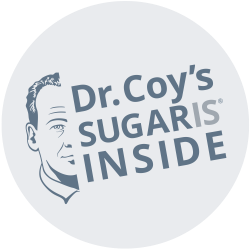A recent study published in Nature Metabolism (September 2025) has provided compelling new evidence that the type and combination of sugars commonly found in sugar-sweetened beverages (SSBs) can accelerate the progression and spread of colorectal cancer (CRC). This research represents an important step forward in understanding how specific combinations of dietary sugars can influence cancer progression at the molecular level.
Study Objective
While previous research has established a link between SSBs and an increased risk of developing colorectal cancer, this study set out to answer a more advanced question:
Can the combination of glucose and fructose, as found in typical SSBs, promote cancer metastasis — the spread of cancer to other organs?
The study also aimed to clarify how this occurs at the molecular level.
Methodology
The researchers investigated the effects of different sugar formulations on colorectal cancer cells, both in vitro and in mouse models. Three conditions were compared:
- Glucose only
- Glucose + Fructose (mimicking the sugar profile of sucrose or high-fructose corn syrup)
- Fructose only (used as a control; cells do not typically encounter fructose in isolation in vivo)
Key outcomes measured included cancer cell migration, invasion, and metastasis, as well as detailed metabolic changes at the cellular level.
Key Findings
- Glucose + Fructose Increases Metastatic Potential
Cells exposed to both glucose and fructose showed significantly greater motility, invasiveness, and liver metastasis compared to cells exposed to glucose alone. This was confirmed in both cell cultures and live animal models. - The Mechanism: Redox and Metabolic Reprogramming
The combination of glucose and fructose activates the polyol pathway, particularly via the enzyme sorbitol dehydrogenase (SORD). This triggers a reverse reaction that increases the NAD⁺/NADH ratio, relieving a metabolic bottleneck and accelerating glycolysis. - Activation of the Mevalonate Pathway
The metabolic shift also fuels the mevalonate pathway, which is known to support cellular growth and motility — key processes in cancer metastasis. Inhibiting this pathway, or disrupting SORD function, significantly reduced the metastatic potential in experimental models. - Fructose Alone Does Not Have the Same Effect
Interestingly, fructose by itself did not support cancer growth or spread. The harmful effects were dependent on the combined presence of glucose and fructose — exactly the composition found in common sweeteners like sucrose and high-fructose corn syrup.
Confirmed Across Three Models
One of the major strengths of this study is that the findings were consistently demonstrated across three levels of experimentation:
- Colorectal cancer cells treated with three sugar conditions (glucose alone, glucose + fructose, and fructose alone)
- Mouse models injected with these treated cells
- Molecular tests performed on human organoids
This multi-tiered approach strengthens the reliability and translational relevance of the results.
Implications
This study shifts the conversation beyond general concerns about “too much sugar” or obesity-related cancer risk. It demonstrates that specific combinations of sugars, particularly glucose plus fructose, can directly enhance cancer aggressiveness through defined metabolic pathways — independent of weight gain or tumour size.
The findings underscore the need for a more nuanced understanding of how different sugars affect cellular processes. Not all sugars are metabolically equivalent, and their structural and compositional differences can have serious biological consequences.
Addressing the Risk with Rare Natural Sugar Alternatives
At Intelligent Sugar, we advocate for sugar choices that are naturally derived and backed by science. This study reinforces the need to move away from conventional sugars such as sucrose and high-fructose corn syrup, which are rapidly absorbed and provide the exact glucose-fructose combination identified as harmful in this research.
Dr. Coy’s Sugar mixtures are formulated based on scientific principles that take metabolic pathways into account:
| Conventional Sugars | Dr. Coy’s Sugars |
| Contain 50% glucose and 50% fructose (e.g., sucrose, HFCS) | Free from metabolically disruptive glucose-fructose combinations |
| Rapidly raise blood glucose and trigger glycolytic spikes | Low glycaemic index with no spikes in blood glucose or insulin |
| Feed pathways like the mevalonate pathway that support tumour spread | Formulated with natural sugars (galactose, mannose, tagatose) that block the TKTL1-driven fermentation pathway, limit fuel for cancer cell repair, and support treatments like chemo- and radiotherapy |
By choosing Dr. Coy’s Sugars, consumers can enjoy sweetness without compromising metabolic health. These sugars have a low-glycaemic index and support cellular integrity rather than disrupt it.
Conclusion
The latest research in Nature Metabolism makes one point clear: not all sugars are the same — and some combinations may actively promote disease progression. The glucose-fructose pairing found in sugary drinks can fuel metastatic pathways in colorectal cancer cells through a specific biochemical mechanism.
This highlights the importance of making the intelligent sugar switch – that aligns with metabolic health rather than undermining it. Dr. Coy’s Sugars, scientifically backed alternatives, avoid the pitfalls of conventional sugar.
References
Nature Metabolism (2025). Fructose and glucose from sugary drinks enhance colorectal cancer metastasis. Nature Metabolism. https://doi.org/10.1038/s42255-025-01368-w
Available at: https://www.nature.com/articles/s42255-025-01368-w


